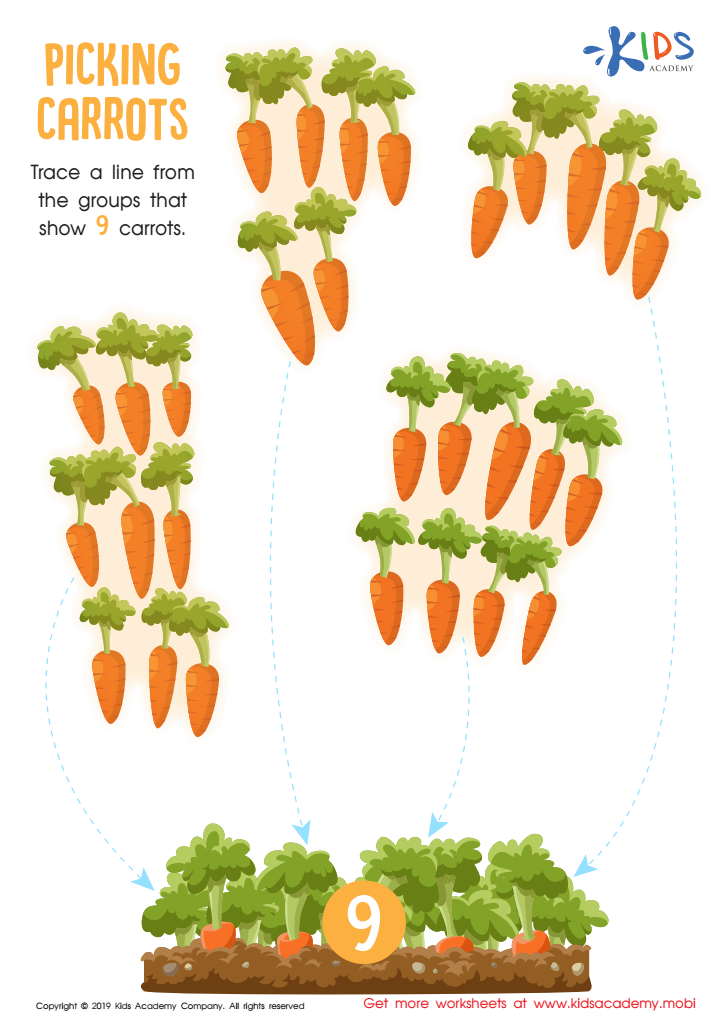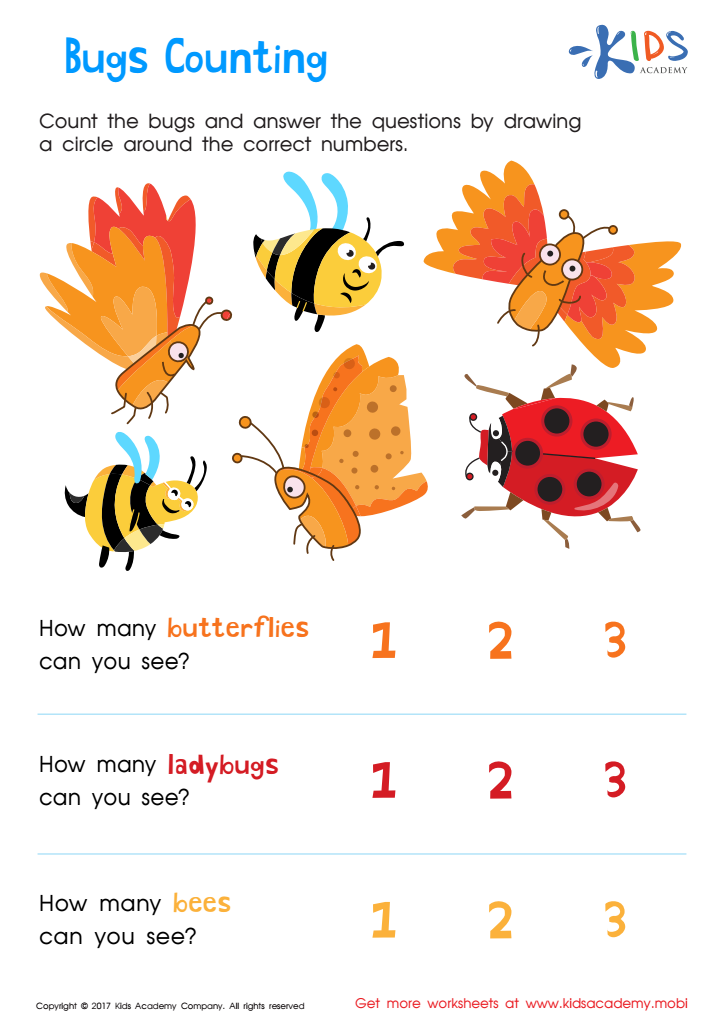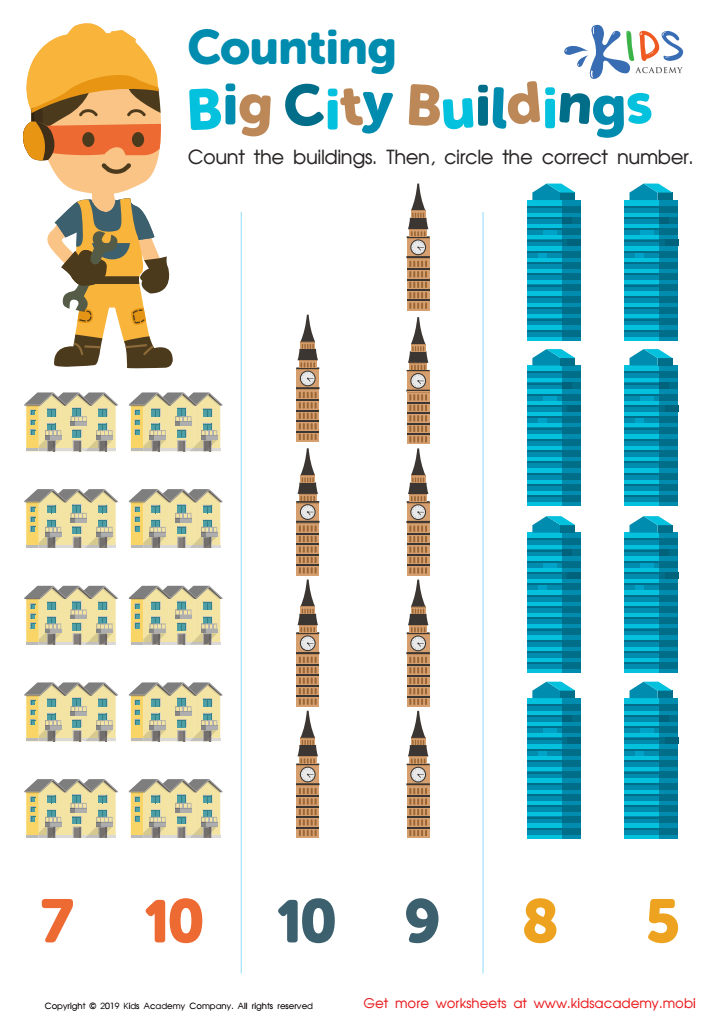Understanding Quantities Easy Numbers Worksheets for Ages 3-9
3 filtered results
-
From - To
Welcome to our "Understanding Quantities Easy Numbers Worksheets" specifically designed for children ages 3-9! These engaging, expertly crafted worksheets provide a fun way for young learners to explore and grasp the concept of quantities. Covering essential skills like counting, comparing amounts, and recognizing numbers, our resources cater to diverse learning styles. By incorporating colorful illustrations and interactive activities, your child will develop a strong numerical foundation while enjoying the learning process. Perfect for educators and parents alike, these worksheets foster confidence in early math skills and ensure that foundational quantitative reasoning is easily understood. Start their learning journey today!


Picking Carrots Worksheet


Bugs Counting Worksheet


Counting Big City Buildings Worksheet
Understanding quantities and easy numbers is essential for children aged 3-9 as it lays the groundwork for their mathematical development. This foundational skill helps them grasp basic concepts like counting, addition, and subtraction, which are critical for their academic success. Early numerical understanding fosters cognitive development, encouraging problem-solving and logical thinking.
For parents and teachers, engaging children with quantities helps boost their confidence in math, an area where many struggles can stem from a lack of early exposure. Developing numerical intuition at a young age creates a positive attitude towards math, making future learning more enjoyable. Moreover, qualitative interactions with numbers encourage storytelling and play, promoting learning through active exploration.
Introducing quantity-related activities, such as counting objects or comparing groups, in everyday situations makes learning relevant and fun, reinforcing concepts through practical applications. This not only strengthens their mathematical skills but also enhances their communication and social skills as they discuss their thoughts and strategies.
In summary, fostering an understanding of quantities and easy numbers from ages 3-9 empowers children with essential skills for lifelong learning. It enables parents and teachers to nurture confident, capable learners ready to tackle more complex concepts in the years ahead.

 Assign to My Students
Assign to My Students







%20(1).jpg)








